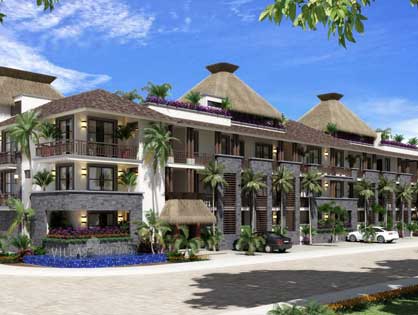
Top 5 Reasons Why Property Prices Appreciate
Properties that have a strong potential for capital appreciation have always been on the radar of real estate investors. And now, there's also an interest from those who wish to buy a home rather than rent one. Owning an asset that can appreciate becomes a source of financial security. Having a house that appreciates also gives the option of selling the home and buying a larger, better property should there be a need down the road.

Reasons for Appreciation in Property Prices
There are several reasons why the property’s market value increases over time, including:
· The law of supply and demand in a given location.
· Behavior of fiscal inflation.
· The cost of borrowing assessed by banks in the form of interest rates.
· Development of new infrastructure, such as shopping malls, schools, airports or increased public transportation facilities.
· Increase in the local population, which can lead to an increase in housing demand.
1.- Supply and Demand
Property prices will increase if demand rises, and there is not enough current real estate or new homes being built to meet the growing demand. To say it differently, people are willing to pay more for a property because the benefits of living in that particular city are worth the higher price. When there is more demand from end-users (homebuyer’s), the real estate investors, who purchased residential properties when the demand was low, will put them on the market to take advantage of the higher selling prices. As an end-user, the best time to buy a home with high appreciation potential, is when investor activity has not yet begun, or is only minimal.
2. Fiscal Inflation
Inflation occurs when there is too much money in circulation, causing the value of that particular currency to reduce. During periods of inflation, the price of land, construction materials, and labor increases. Inflation will only cause appreciation of a property when there is adequate accessibility, social and civic infrastructure and a limited supply of residential projects.
3. Cost of Borrowing
When the interest rates on home loans increase, demand for homes tends to slow down. The reason being, fewer buyers can afford the higher rates. This movement in the cost of borrowing, or interest rates, directly affects real estate appreciation. On the flip side, when the interest rates decrease noticeably, there’s a higher demand for properties due to the favorable rates.
4. New Development - Market Drivers
In relation to residential real estate, the term ‘market drivers’ refers to new developments that improve the desirability and convenience of living in that area. Market drivers can include:
· Development of new office complexes.
· Brand new or renovated shopping mall.
· Close proximity of businesses, schools, universities and hospitals that can reduce travel or commute time. Zoning regulations to prevent excessive development from occurring. Without over development, availability of open spaces, greenery and overall attractiveness of the area is preserved.
· Close proximity to public transportation facilities, such as freeways, buses, trains or airports, ensuring the location is easily accessible.
· New infrastructure projects that take measures to improve the quality of life, such as the reduction in traffic congestion, an overpass, a water reservoir, etc.
5. Increase in Population
Lastly, the increase in population directly correlates to an increase in demand for housing. Thus, the appreciation in real estate prices would increase because of the increase in demand from people moving to that location.

Latest Posts
Contact us
Ryan Gravel

Ryan Gravel is an American real estate broker and developer. He began his career at a young
age working for his family owned construction company.
After graduating college at the University of Central Florida with a degree in business,
Ryan set out to find untapped prolific markets around the world. His search landed him in
Playa del Carmen, Mexico where he founded Virgin Realty Mexico and co-founded the Saatal
Development Group one of the fastest growing development companies in the Riviera Maya.
With extensive market knowledge, professionalism, etiquette, innovation and integrity Ryan
is known as one of the most highly respected real estate advisors in the region.




